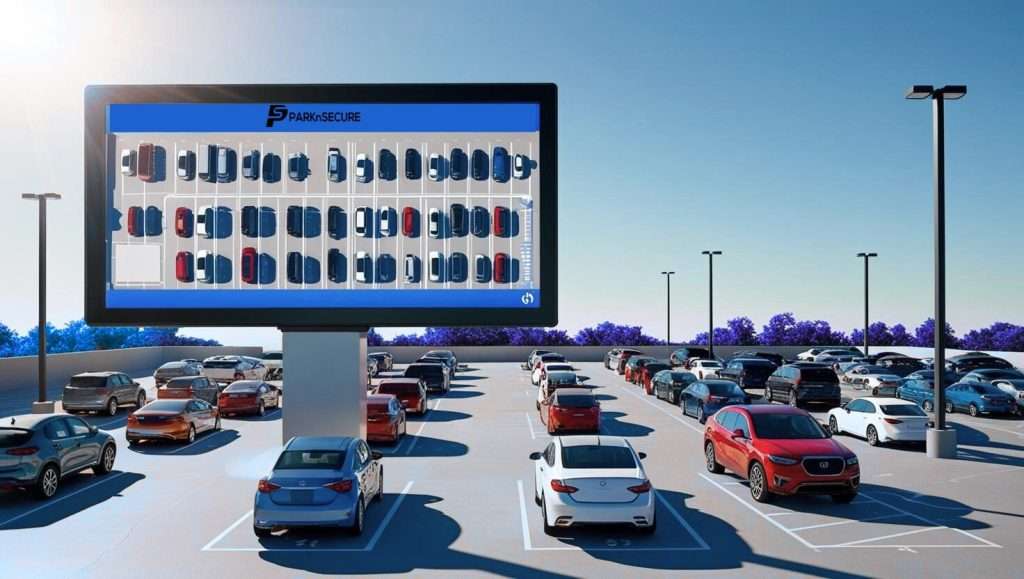
Modern universities and hospitals face one continuous and frustrating challenge: parking. Whether it’s students rushing to classes, teachers getting late to shifts, or patients who needs immediate care, the demand for efficient, stress-free parking has never been higher. Thankfully, smart parking management systems are transforming the way large institutions handle this critical issue.
This beginner’s guide explores how universities and hospitals are initiating smart parking technologies to boost efficacy, enhance understanding, and also optimize resource use.
What Is a Smart Parking Management System?
A parking management system is a thorough solution that consolidate the entire parking process—from entry and exit to availability tracking and payments. These systems often include automated access control, real-time data monitoring, and integration with apps for better user convenience.
For large facilities like universities and hospitals, the benefits of a smart parking solution extend beyond convenience. They improve traffic flow, reduce waiting times, and increase security.
Components of a Smart Parking System:
- Parking Guidance System: Uses sensors and digital signage to direct drivers to available spots.
- Automated Entry/Exit: Barriers and ticketless systems reduce congestion.
- Payment Integration: Offers cashless and contactless payment options.
- Data Analytics: Helps managers track usage patterns and forecast demand.
Why Parking Is a Major Challenge at Universities and Hospitals
Before we dive into the benefits of smart parking, it’s important to understand why parking is so problematic in these environments.
High Traffic Volume
Both universities and hospitals operate almost 24/7. With thousands of students, faculty, staff, patients, and visitors circulating daily, the volume of vehicles can be overwhelming.
Time Sensitivity
At hospitals, delays in parking can directly affect patient care. Similarly, students and staff can’t afford to waste time circling for parking before lectures or exams.
Limited Space
Urban universities and hospitals often have limited real estate. Efficient space utilization becomes essential.
Security Concerns
Poorly managed parking lots can attract theft, vandalism, and unauthorized vehicle access. Smart parking systems like those provided by Parknsecure can significantly enhance security through automated surveillance and access control.
How Universities Are Using Smart Parking Solutions
Smart Permits and Access Control
Many universities are replacing physical parking permits with digital ones. These digital systems use license plate recognition (LPR) to allow access, eliminating the need for stickers or hangtags.
Real-Time Space Availability
Smart parking guidance systems use sensors to detect which spots are free. This information is shared in real-time via mobile apps or electronic boards, guiding students and faculty to the nearest available spot.
Mobile Apps for Students and Faculty
Universities often integrate parking into their campus apps. Users can:
- View available spots
- Reserve a parking space in advance
- Pay for parking through digital wallets
Benefits for Universities
- Reduced traffic congestion on campus
- Better compliance with parking policies
- Lower administrative overhead
How Hospitals Are Leveraging Smart Parking for Efficiency
Streamlined Visitor Parking
Hospitals are integrating parking guidance systems to direct patients and visitors quickly. Digital signage and mobile apps reduce the time spent looking for parking—critical when time is of the essence.
Staff Parking Management
With shift changes happening round the clock, hospital staff need reliable, quick access to parking. Smart systems allocate spaces based on schedules and allow for fast access via RFID or LPR.
Valet and Emergency Vehicle Coordination
Some hospitals also use smart parking systems to coordinate valet services and reserve spots for ambulances and emergency vehicles.
Patient-Centric Features
- Pre-booked parking for scheduled appointments
- Accessible parking spot detection
- SMS/email alerts with parking directions
Benefits for Hospitals
- Improved patient satisfaction
- Efficient space utilization
- Enhanced security and monitoring
Key Benefits of Smart Parking Systems in Institutions
1. Time and Cost Savings
Reduced search time lowers fuel use and emissions. Automation decreases the need for manual labor and on-site staff.
2. Enhanced User Experience
Whether it’s a student running late or a patient in distress, quick and easy parking improves overall satisfaction.
3. Increased Revenue
Dynamic pricing and better space management help universities and hospitals optimize earnings from paid parking.
4. Data-Driven Decision Making
With analytics from systems like Parknsecure, administrators can:
- Track peak hours
- Plan for future expansions
- Improve traffic flow
Getting Started: Implementing a Smart Parking System
Step 1: Needs Assessment
Begin by identifying your institution’s unique parking challenges. Are you dealing with congestion, unauthorized access, or limited space?
Step 2: Choose the Right Vendor
Select a provider like Parknsecure that offers scalable, customizable solutions tailored to institutional needs.
Step 3: Infrastructure Evaluation
Evaluate existing infrastructure. Are the parking lots sensor-ready? Do you need to install new hardware?
Step 4: Integration
Ensure the new system integrates with your existing access control, payment platforms, and mobile apps.
Step 5: Staff Training and User Education
Educate staff, students, and visitors on how to use the system efficiently through tutorials and signage.
Final Thoughts
Universities and hospitals no longer need to rely on outdated or manual parking solutions. Smart parking management systems, powered by technologies like parking guidance systems and data analytics, are helping these institutions improve efficiency, reduce stress, and enhance user satisfaction.
Solutions from trusted providers like Parknsecure offer scalable and reliable ways to upgrade your parking infrastructure. Whether you’re managing a sprawling hospital campus or a busy university, the benefits of smart parking are clear and increasingly necessary in 2025 and beyond.

